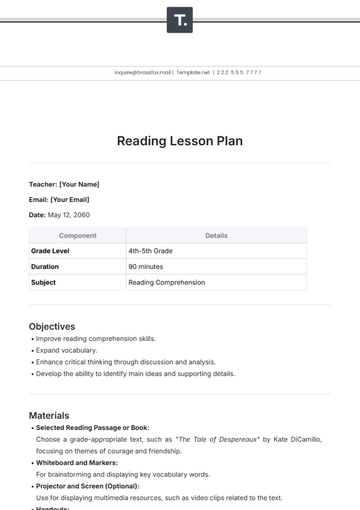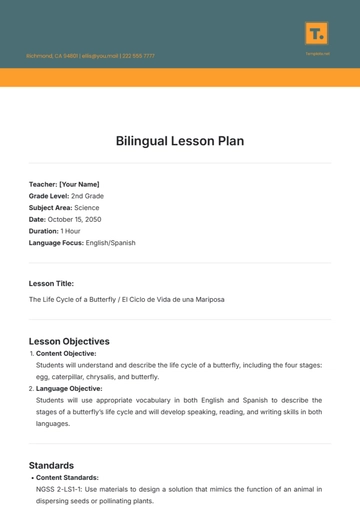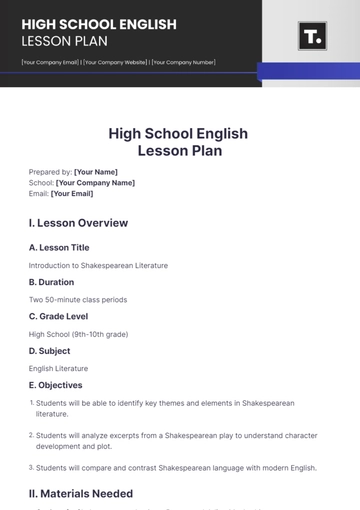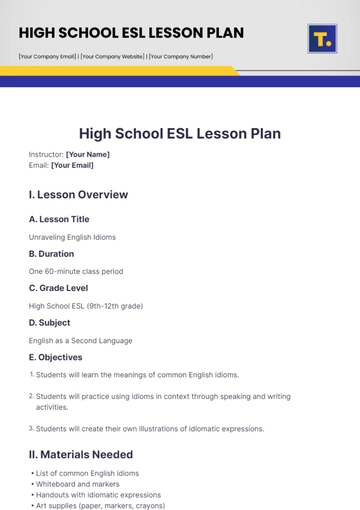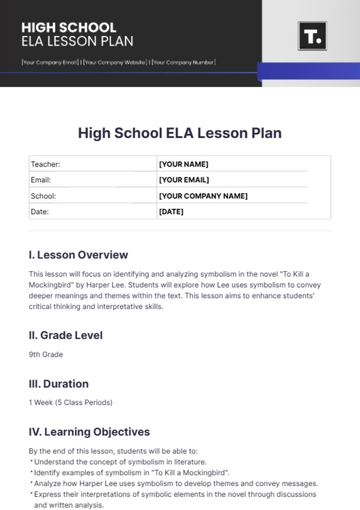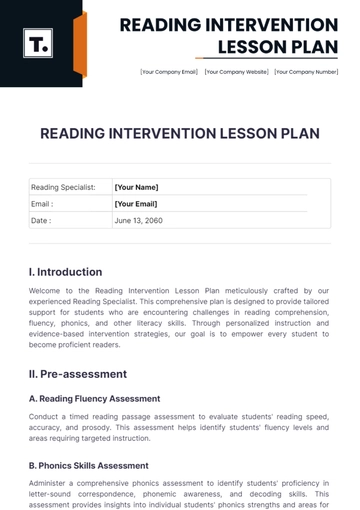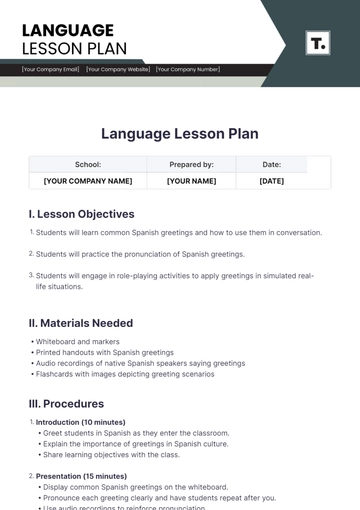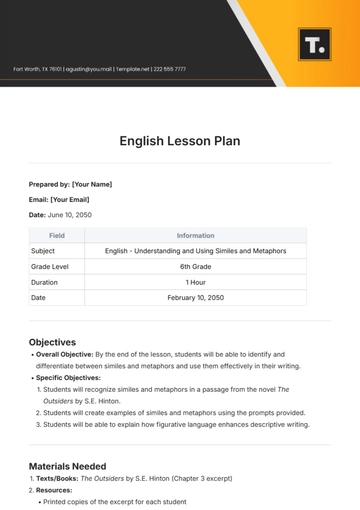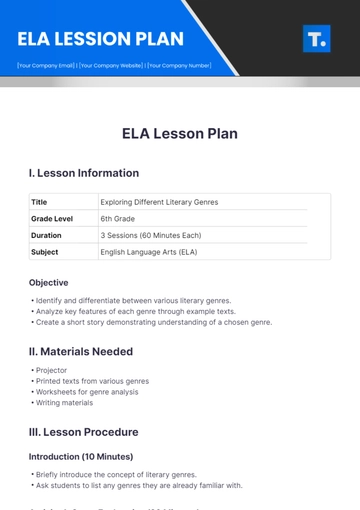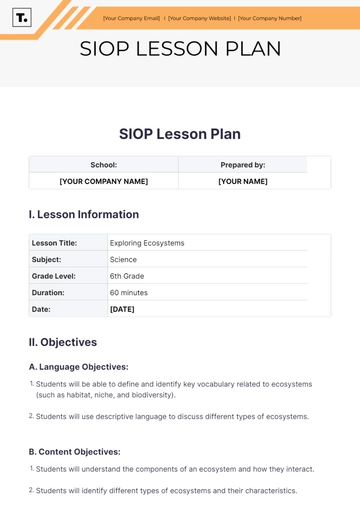Free SIOP Lesson Plan
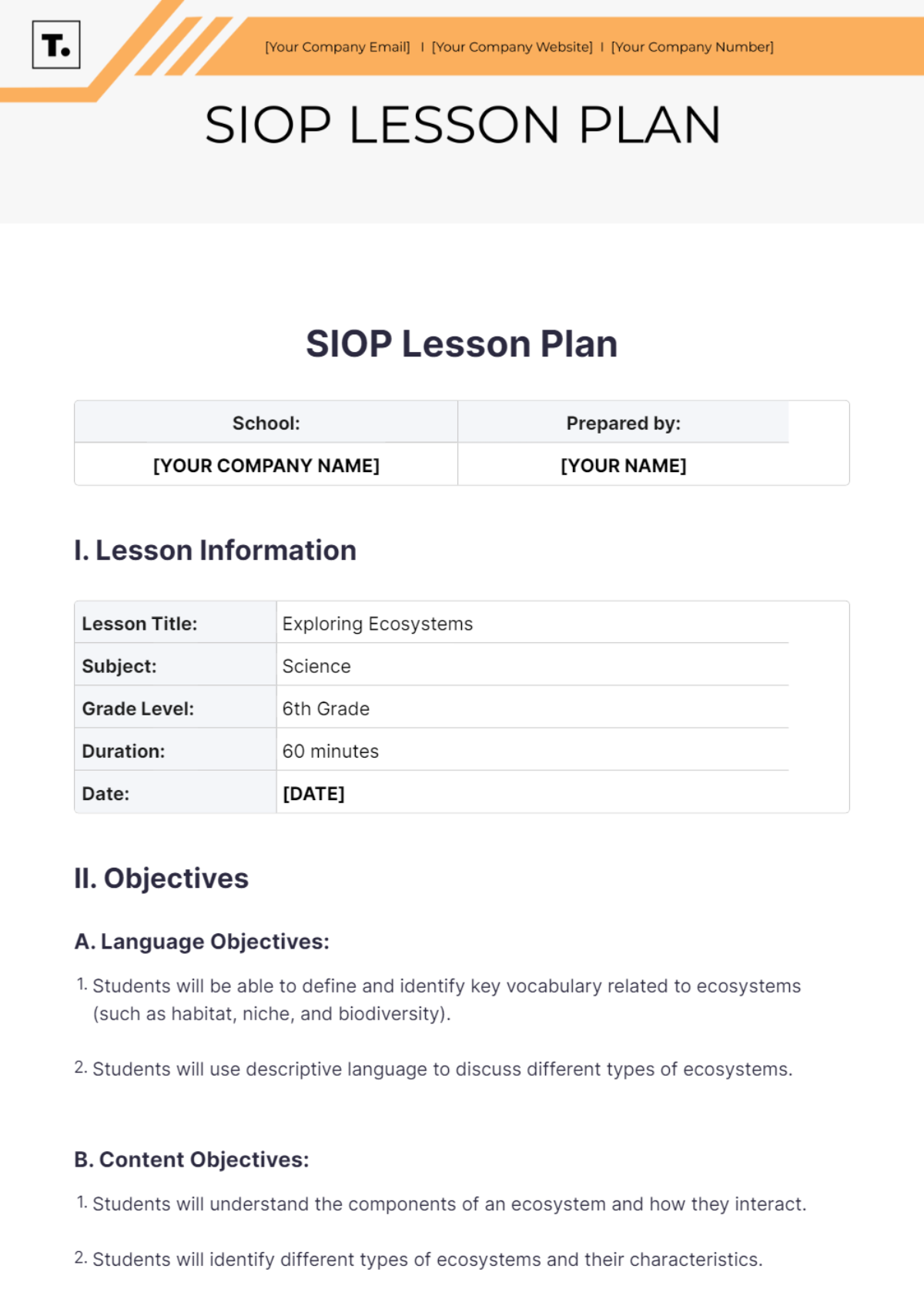
School: | Prepared by: |
|---|---|
[YOUR COMPANY NAME] | [YOUR NAME] |
I. Lesson Information
Lesson Title: | Exploring Ecosystems |
|---|---|
Subject: | Science |
Grade Level: | 6th Grade |
Duration: | 60 minutes |
Date: | [DATE] |
II. Objectives
A. Language Objectives:
Students will be able to define and identify key vocabulary related to ecosystems (such as habitat, niche, and biodiversity).
Students will use descriptive language to discuss different types of ecosystems.
B. Content Objectives:
Students will understand the components of an ecosystem and how they interact.
Students will identify different types of ecosystems and their characteristics.
III. Materials
Textbook: "Exploring Ecosystems" by [AUTHOR]
Pictures of various ecosystems
Graphic organizer worksheet
Whiteboard and markers
IV. Procedures
Introduction (10 minutes): |
|
|---|---|
Main Activity (30 minutes): |
|
Application (15 minutes): |
|
Closure (5 minutes): |
|
V. Assessment
A. Formative Assessment:
Observations during group discussions and presentations.
Review of completed graphic organizer worksheets.
B. Summative Assessment:
Exit ticket: Students will write a short paragraph describing one ecosystem they learned about during the lesson.
VI. Differentiation
A. English Language Learners (ELLs):
Provide vocabulary support through visual aids and language scaffolding.
Pair ELLs with proficient English speakers for collaborative activities.
B. Advanced Learners:
Offer additional challenge questions related to ecosystem interactions and adaptations.
VII. Reflection
Reflect on the effectiveness of language support strategies used during the lesson.
Consider adjustments for future lessons to better meet the needs of ELLs.
- 100% Customizable, free editor
- Access 1 Million+ Templates, photo’s & graphics
- Download or share as a template
- Click and replace photos, graphics, text, backgrounds
- Resize, crop, AI write & more
- Access advanced editor
Optimize your instruction for English learners with Template.net’s SIOP Lesson Plan Template. This customizable template aligns with the Sheltered Instruction Observation Protocol, enhancing language and content learning simultaneously. Editable in our AI Editor Tool, it provides a detailed and flexible framework for lesson planning that supports the diverse needs of English learners.
